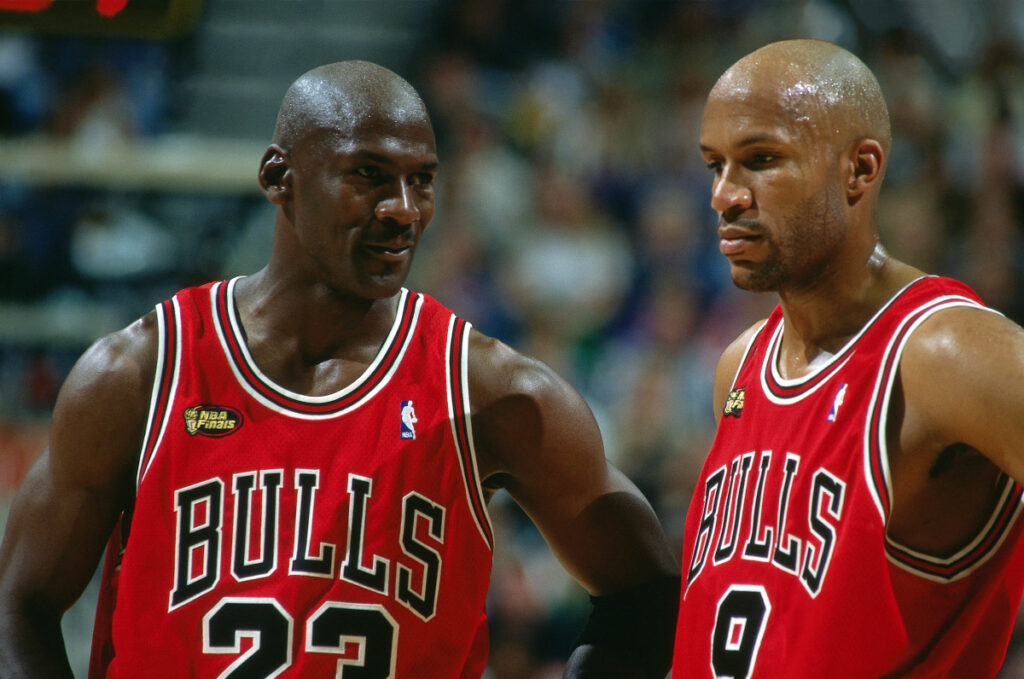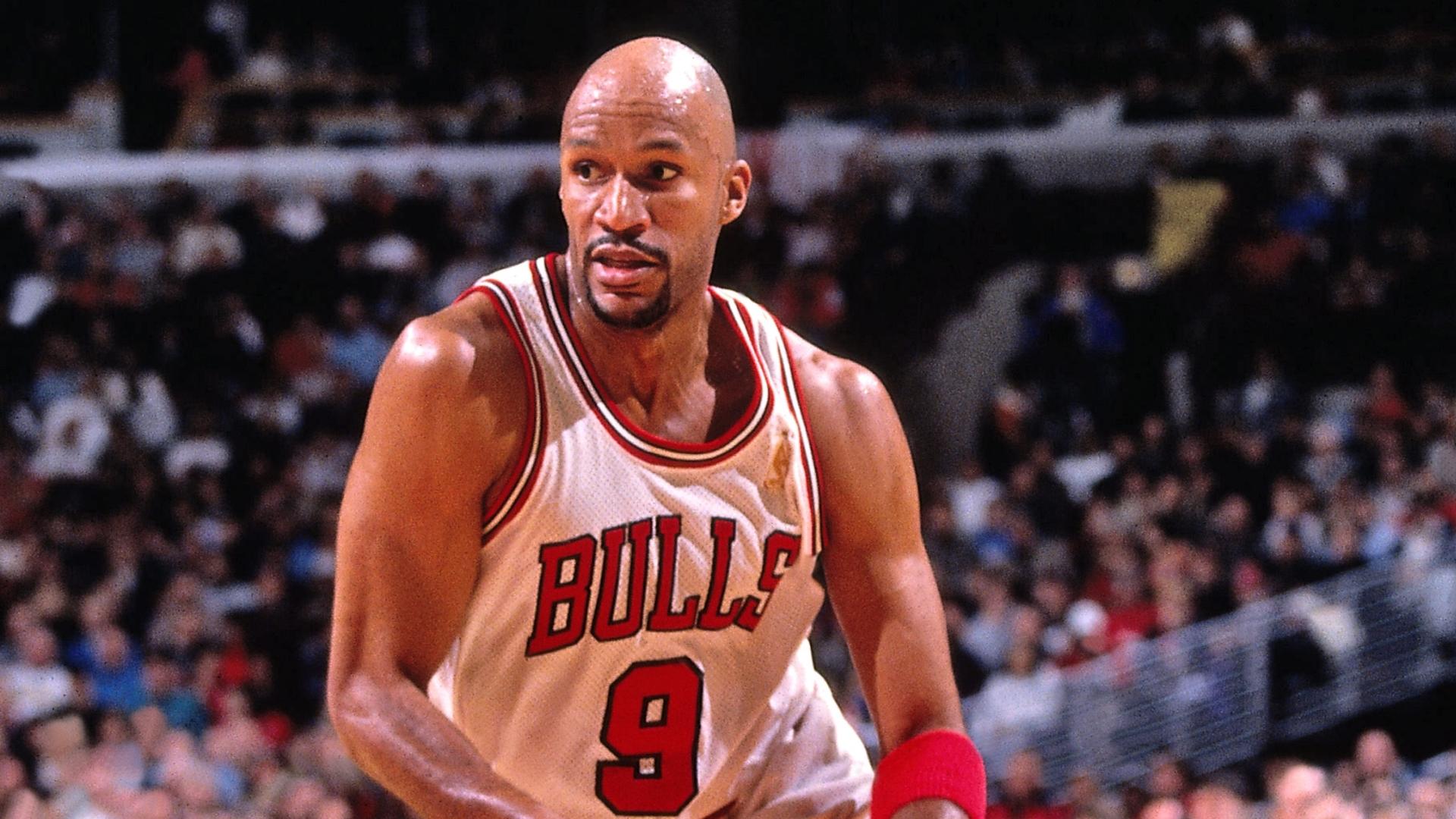Ron Harper, a five-time NBA champion, transformed from scoring star to elite defender. Learn about his journey with the Cavaliers, Bulls, and Lakers, and his legacy as a true team player in NBA history.
Ron Harper: The Underrated Champion of the NBA

Ron Harper may not be the first name mentioned when discussing NBA legends, but his contributions to five NBA championship teams and his transition from a high-scoring guard to a selfless role player demonstrate a unique and remarkable basketball career. Harper’s legacy, defined by adaptability, defense, and winning, deserves recognition among the game’s greats.
Early Life and College Career
Born on January 20, 1964, in Dayton, Ohio, Ron Harper grew up in a challenging environment but used basketball as a means to rise above adversity. He starred at Kiser High School before attending Miami University in Ohio, where he quickly made his mark.
Harper was a dominant force in college, finishing his collegiate career as Miami’s all-time leading scorer with over 2,300 points. His athleticism, scoring ability, and defensive prowess earned him multiple honors, including MAC Player of the Year and All-American distinctions. His performance drew the attention of NBA scouts, and he was selected 8th overall in the 1986 NBA Draft by the Cleveland Cavaliers.
NBA Beginnings: Cleveland Cavaliers and Los Angeles Clippers
Harper’s career began with the Cleveland Cavaliers, where he immediately showcased his scoring talent. In his rookie season, he averaged 22.9 points per game and was named to the NBA All-Rookie First Team. He was known for his explosive drives, leaping ability, and relentless defense.
However, a shocking trade sent him to the Los Angeles Clippers in 1989. Despite playing for a struggling franchise, Harper remained productive, averaging over 19 points per game during his Clippers tenure. Unfortunately, injuries, including a major ACL injury, began to limit his athleticism, forcing him to evolve his game.
Championship Years with the Chicago Bulls
In 1994, Ron Harper signed with the Chicago Bulls, a move that redefined his career. Playing alongside legends like Michael Jordan, Scottie Pippen, and later Dennis Rodman, Harper transformed into a defensive specialist and team leader.
No longer the go-to scorer, Harper embraced a supporting role under head coach Phil Jackson. His high basketball IQ and ability to guard multiple positions made him invaluable during the Bulls’ second three-peat (1996–1998). Harper’s defensive assignments often included the opponent’s best guard, allowing Jordan and Pippen to conserve energy for offense.
He was a key piece of the Bulls’ triangle offense, contributing clutch plays, timely scoring, and veteran leadership. During this period, Harper helped the Bulls set an NBA record (at the time) with 72 wins in the 1995–96 season.
Final Championships with the Los Angeles Lakers
After Jordan’s second retirement and the Bulls’ breakup in 1998, Harper joined Phil Jackson again, this time with the Los Angeles Lakers. Though in the twilight of his career, Harper brought championship experience to a young team led by Shaquille O’Neal and Kobe Bryant.
Harper played a supporting role as the Lakers won back-to-back championships in 2000 and 2001, bringing his career total to five NBA titles. He retired following the 2001 season, leaving behind a legacy defined by selflessness and winning.
Career Stats and Legacy
Over his 15-season NBA career, Ron Harper accumulated:
- 13.8 points per game
- 4.3 rebounds
- 3.9 assists
- 1.7 steals
While his stats don’t scream superstar, Harper’s impact was far greater than numbers. He was a key contributor on five championship teams and a master of reinvention, shifting from a scoring guard to a defensive specialist.
Ron Harper is also notable for mentoring younger players and serving as a bridge between superstars and role players. His understanding of team dynamics and commitment to winning made him a trusted presence in locker rooms.
Life After Basketball
Post-retirement, Harper has remained involved in basketball and community work. His son, Ron Harper Jr., followed in his footsteps and played college basketball at Rutgers University, later joining the NBA G League.
Harper has also spoken publicly about his experiences with a speech impediment, becoming an advocate for those with speech disorders and inspiring others with his perseverance both on and off the court.
Conclusion
Ron Harper’s journey from high-flying scorer to five-time NBA champion reflects the heart of a true competitor. In a league often driven by individual accolades, Harper’s story is a reminder of the value of adaptability, defense, and teamwork. Though underrated by many, his impact on some of the greatest teams in NBA history cannot be overstated.

